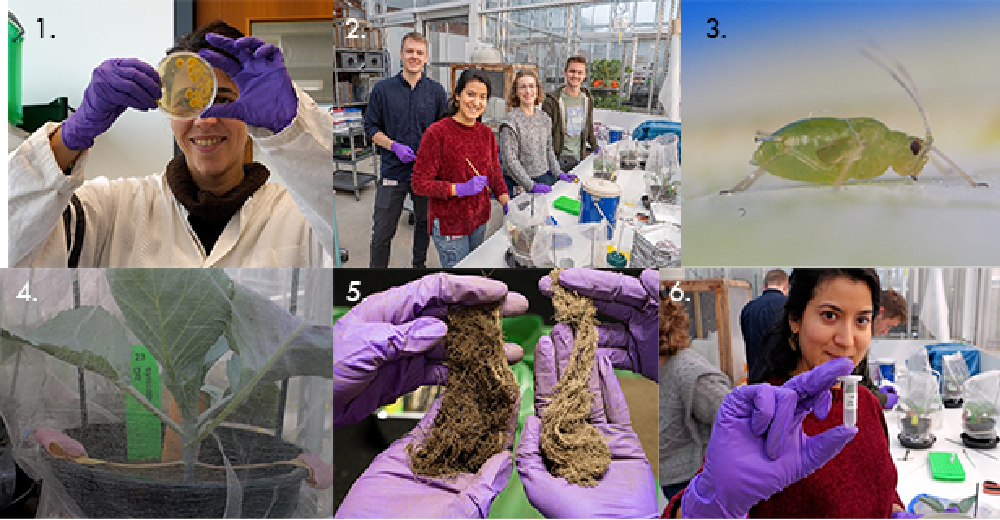First Syncom expirment underway at WUR Entomology
2024-12-18

PhD-students Marcela Aragón Gomez (Lab. of Entomology, WUR) and Zulema Carracedo Lorenzo (Lab. of Plant Physiology, WUR) conducted the first SynCom experiment to identify beneficial bacteria that could leverage cabbage plant resistance to aphids and drought stress. They selected eleven bacterial strains that were more abundant in the cabbage rhizosphere during aphid infestation, drought stress or both. Interestingly, three out of eleven amplicon sequence variants were shared between aphid and drought stress and suggest common rhizosphere responses to both conditions.
Corresponding bacterial isolates from the MiCRopial bank were selected, cultured and collectively inoculated to the rhizosphere of cabbage plants that were exposed to aphids, drought or both (plus a control treatment). Plant phenotypes, and soil, root and leaf samples were collected and are currently under investigation. We are looking forward to unraveling the results in 2025! ~Karen Kloth

